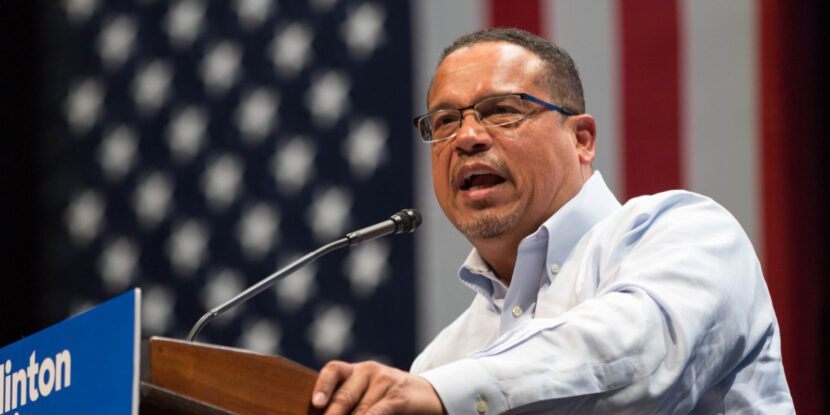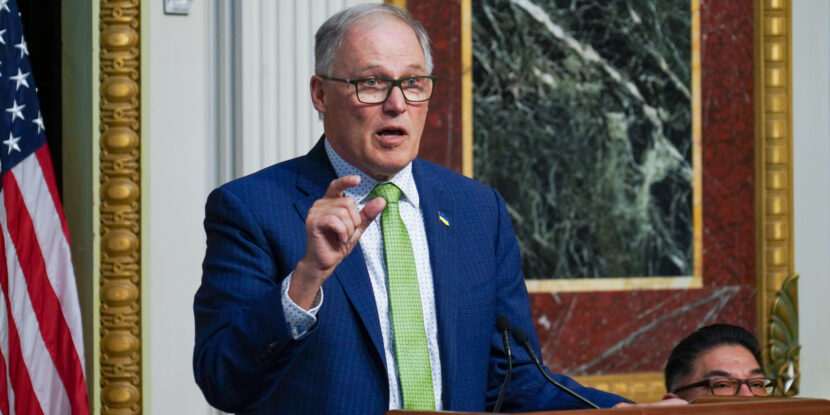At least three Republican Members of Congress have voiced their intent to back former President Donald Trump for Speaker of the House. Rep. Troy Nehls (R-TX) said Tuesday he will nominate Trump for the Speakership. Reps. Marjorie Taylor-Greene (R-GA) and Greg Steube (R-FL) both said they would support the nomination.
Trump, the presumed 2024 Republican nominee for President, appears to be open to serving as Speaker of the House for a short period of time while a more permanent replacement is decided upon – though he has emphasized he is focused on defeating Democrat Joe Biden and retaking the White House. In a post on Truth Social, Trump pledged to “…do whatever is necessary to help with the Speaker of the House selection process…” and ensure the selection is a “…Speaker who will help a new, but highly experienced President, ME, MAKE AMERICA GREAT AGAIN!”
A Trump nomination for Speaker faces two potential obstacles besides the task of securing a 218 vote majority in the House of Representatives – something every Speaker nominee will face. First is the question of whether or not a non-member of the House of Representatives can serve as Speaker. Article 1, Section 2 of the U.S. Constitution states: “The House of Representatives shall choose their Speaker and other Officers; and shall have the sole Power of Impeachment.” It does not specify the Speaker has to be an elected member serving in the legislative body – meaning, in theory at least, a private citizen could be chosen. This is the view held by the government’s Congressional Research Service as no other officers of the House elected along side the Speaker are required to be members either.
Not all constitutional scholars agree with this interpretation however. The prior clauses in Article 1, Section 2 detail the precise requirements to serve as a member of the House or Senate and the procedure for electing members of either legislative body. Some argue these clauses govern all subsequent clauses in this section, meaning the Speaker must be a member of the House. Additionally, the first meeting of the United States Congress adopted rules requiring the Speaker to cast tie-breaking votes – and only elected-members of Congress can vote. Lastly, scholars note the Presidential Succession Act of 1947 specifically recognizes the Speaker as being an elected Representative in the House.
The last hurdle for a Donald Trump nomination for Speaker are two provisions in Conference Rules adopted by House Republicans at the start of this year. Rule 26 states any “….member of the Republican Leadership shall step aside if indicted for a felony for which a sentence of two or more years imprisonment may be imposed.” The Speaker is listed as a member of Republican leadership under Rule 2.
While the Republican Conference rules could simply be amended, it may not be necessary. The Speaker of the House, unlike other leadership positions, is enumerated as an officer of the House specifically by the Constitution, likely meaning any Conference restrictions – and punishments – regarding the Speakership could only be enforced against members who supported a candidate in violation of the rules and not the Speaker themselves.
So could Donald Trump be Speaker? Unfortunately the answer might have to be: we’ll see.




















